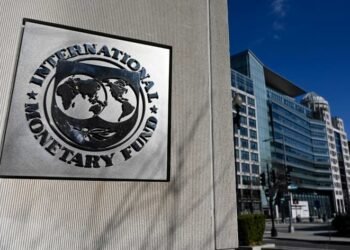In a historic monetary policy decision on July 30, 2025, the Bank of Ghana (BoG) stunned the financial markets by slashing the policy rate by 300 basis points—from 28% to 25%.
This move, the largest single rate cut in Ghana’s economic history, comes as inflation slows dramatically, with year-on-year headline inflation falling to 13.7% in June—the lowest since December 2021.
The decision has ignited a wave of optimism across Ghana’s financial ecosystem. According to Mr. Isaac Kwesi Mensah, a leading market analyst and corporate finance expert at SIC Financial Services Ltd (SIC-FSL), this rate cut is a powerful signal of macroeconomic stability and a green light for market acceleration.
Speaking in an exclusive interview with Vaultz News, Mr. Mensah emphasized the strategic significance of the Bank’s action. “This is not just another policy decision. It’s a bold vote of confidence in the economy and a forward-looking signal that Ghana is entering a lower inflation, higher growth phase,” he said.
The rate cut follows months of tight monetary policy that helped contain inflation, supported by fiscal consolidation measures and stable food supply dynamics.
“The Bank of Ghana has earned credibility over the last year by maintaining a firm stance against inflation. Now, with inflation falling sharply and the cedi stabilizing, the central bank has created the room to stimulate growth without jeopardizing stability.”
Mr. Isaac Kwesi Mensah
GSE to Benefit from Portfolio Rebalancing
According to the analyst, for the Ghana Stock Exchange (GSE), which has already been enjoying a stellar year, the rate cut may inject further bullish sentiment. The GSE Composite Index (GSE-CI) had already posted a 38.61% year-to-date (YTD) return by the end of July, making Ghana one of Africa’s top-performing stock markets in 2025.
“With interest rates coming down, the risk-return profile of equities becomes far more attractive. We’re going to see portfolio rebalancing away from short-term Treasury bills into dividend-paying and growth stocks. This will further deepen liquidity in the equity market and boost market capitalization.”
Mr. Isaac Kwesi Mensah
He also highlighted banking, telecoms, consumer goods, and agriculture-linked firms as likely beneficiaries. “These sectors stand to gain from lower borrowing costs, improved consumer spending, and stronger corporate earnings,” he noted.
Bonds to Rally on Price Gains
Beyond equities, the secondary bond market is also expected to experience an upswing. Mr Mensah explained that bondholders who were locked into higher-yielding instruments during the domestic debt exchange program or subsequent issuance cycles now stand to gain from price appreciation.
“Bond yields and prices move inversely. With the policy rate dropping, yields on existing bonds are now more attractive relative to new issues. This dynamic will drive demand in the secondary market and cause prices to rise.”
Mr. Isaac Kwesi Mensah
The anticipated bond rally may also help institutional investors—especially pension funds and insurance companies—recoup earlier mark-to-market losses that followed the domestic debt restructuring in 2023.
The cedi’s relative stability in recent months has further reinforced investor confidence. “Foreign portfolio investors are watching Ghana closely,” Mensah noted. “If the cedi continues to hold firm, and real interest rates remain positive, we may see renewed foreign inflows into both the bond and equity markets.”
He added that macroeconomic reforms supported by the IMF programme, as well as improving terms of trade, are strengthening Ghana’s external position—an essential factor in sustaining the cedi’s performance.
Caution and Strategy
While the outlook is optimistic, Mr Mensah urged investors not to become complacent. “This is a window of opportunity—but it’s not without risks,” he said. “The government must stay the course on fiscal discipline, and global commodity prices, especially oil and cocoa, must remain favorable.”
For retail and institutional investors, he recommended a strategic approach
“Diversify your portfolio. Increase your equity allocation, especially in undervalued stocks with strong fundamentals. And for bonds, focus on medium to long-term maturities to maximize capital gains.”
Mr. Isaac Kwesi Mensah
He believes that if inflation continues to trend downward and the government maintains its fiscal path, there could be another rate cut before year-end—albeit smaller. “We could see another 100 basis points shaved off if the economic indicators align,” Mensah suggested.
Final Thoughts: A New Chapter for Ghana’s Markets
In his final thoughts, Mr. Mensah described the rate cut as a more than a rate cut for Ghana’s financial markets.
“This is more than a policy adjustment—it’s a clear signal that Ghana is turning the page. The economy is stabilizing, the markets are responding, and investor sentiment is shifting. For those willing to take calculated risks, the potential for strong returns has never been higher.”
Mr. Isaac Kwesi Mensah
As Ghana enters this new monetary phase, the coming months will be key. For now, the markets appear poised to ride the wave of confidence sparked by a central bank that is not only in control but firmly focused on growth.
READ ALSO: Public Support Grows for DSTV Subscription Price Cut























